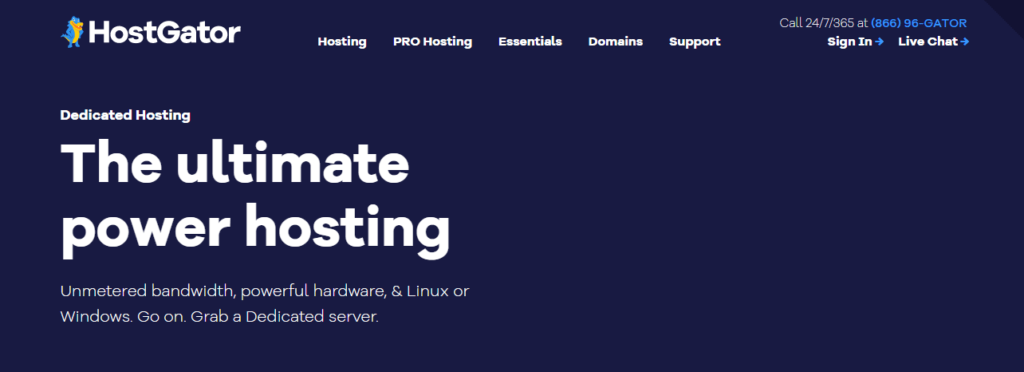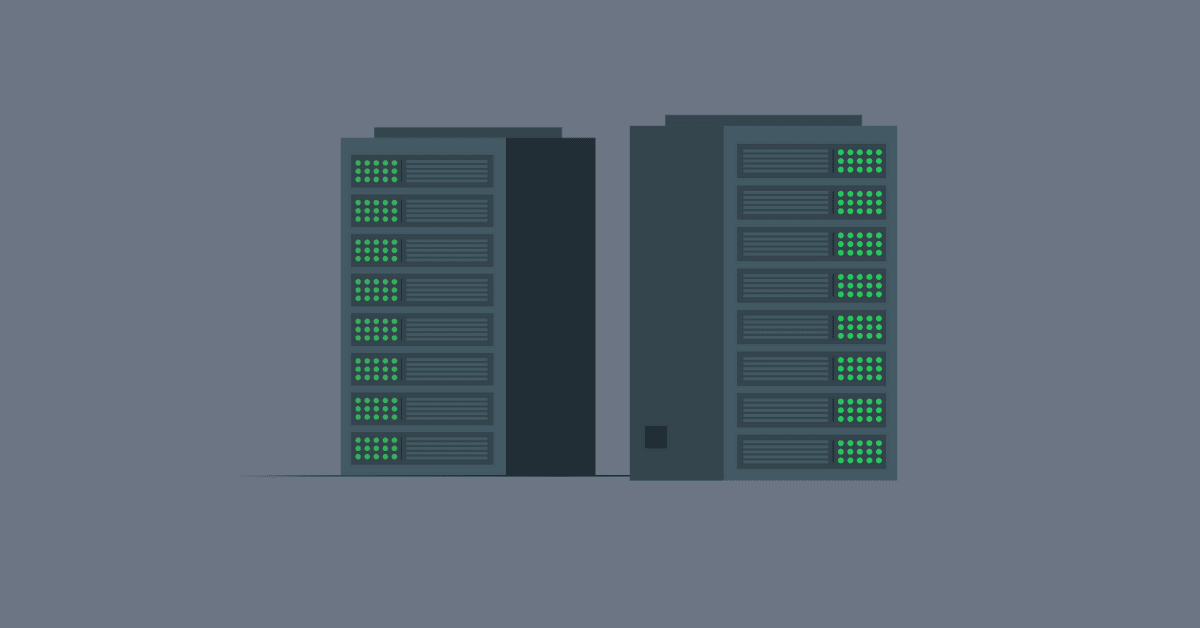Choosing web hosting for your blog or website can be a little bit challenging, especially if you’re new to blogging or hosting a website online, or just creating your first blog. You might have come across different opinions about web hosting and which one you should go with for your project, this might make things harder for you to make a choice of the best web hosting to go for. In this article, you learn types of web hosting and what plan you should go with based on your business needs.
The truth about web hosting is that not every business requires expensive web hosting plans before they can host a website. Purchasing a web hosting plan should be according to your business requirement and needs, you or your business needs to pick a web hosting plan that fits your business needs per time, there’s always room for an upgrade if need be. I will explain each web hosting with pros and cons to know the actual web hosting that is right for you and your website so that you can make a proper decision when next you want to host your website.
Choosing a web hosting plan for your blog or website can be a little bit challenging especially when you're just getting started with blogging. You need to go with a web hosting solution based on your business needs. Share on XTable of Contents
Shared Hosting
We are going to look at shared hosting first; shared hosting is a type of hosting that allows multiple websites to share a single physical server. You are sharing resources with one or many other websites on a single server when your website is on shared hosting. On shared hosting each user get a section of a server in which they can host their website files, which keeps the cost of hosting the website low for each user. Each user on shared hosting will have access to features like databases, FTP account, IP address, monthly traffic, disk space, emails accounts and share system resources like RAM and CPU among themselves.
Shared hosting can be likened to sharing an apartment with hundreds of people you don’t know, you are just in an apartment with total strangers you don’t know what they are capable of but you’ve got to share all the resources in the apartment with them. Shared hosting is ideal for low-traffic websites and webmasters who are on a budget. It is the cheapest and most economical way for low-budget webmasters to put their websites online. It is an entry-level to host a website for many small-scale businesses, low-traffic blogs and startups, it allows small businesses to share a space on a server with other websites so that the entire cost of hosting can be kept low.
Although shared hosting is the most popular hosting option and the most cost-effective way small businesses can put their businesses online it may be more than enough for their needs, some businesses don’t even need more than shared hosting to digitalize their business because they can exhaust the resources provided by shared hosting. However, the cheap price and limited resources come with disadvantages, we are going to look into that shortly.
Advantage Of Shared Hosting
Shared hosting comes with numerous benefits, especially for startups, and those who want to cut the cost of hosting. Here are some of the advantages of shared hosting.
- Cost Effective
Shared hosting is by far the most cost-effective option to host a website online. Hundreds of thousands of people contribute to owning a server for some time since they don’t have money to own the entire server. The actual price of a shared hosting plan differs depending on the hosting company but it is usually around $2-$10 per month.
- Flexibility
Most hosting companies have multiple levels of shared hosting plans available on their website, for easy upgrade of the plan, in case your website needs more than the resources provided with your current shared hosting plan, you can easily upgrade to another higher hosting plan, making it the easiest way to get started and upgrade as your site grows.
- Easy to self-manage
Since shared hosting is where a single server hosts multiple websites at a time, with several separate partitions and each website has its file directory on the server. Each website user is given a control panel known as “CPanel” to manage their resources and files. The CPanel makes it easier for each individual to manage websites without interfering with other users’ files.
- No technical maintenance needed
No technical maintenance whatsoever needed to be done on your part to the server; the hosting company takes care of the maintenance and administrative task of the server your payment package covers. The updates and upgrades of resources on the server like MySQL, Apache and Email server are done by the hosting company.
- Can host any kind of script or software
The fact that it is called shared hosting doesn’t mean you can’t host any script or application on it. With shared hosting, you can upload any dynamic or static content on the server.
Disadvantages of shared hosting
Shared hosting may have numerous pros like being cheap and affordable but shared hosting comes with some cons too.
- Performance Issue
The load time on shared hosting can be a lot slower as time goes on. If someone you’re sharing server resources with has large traffic and using a lot of resources your website tends to be slow and that may affect how your business fares online.
- Security Issue
On shared hosting, you don’t know who you’re sharing resources with, as such your website may be at risk if your neighbour’s website is a target of a hacker or attacked by brute force. Although, the security threat on shared hosting is very rare because most hosting companies will immediately shut down any website that poses risk to another website on the server but it is worth mentioning. A single bad user on shared hosting can cause the entire server to crash and put many businesses on the server in problems and financial loss.
- Limited Customization
On shared hosting, you don’t have the option to use your preferred software to run certain scripts for your database. For instance, most shared hosting plans come with an MYSQL database, if you would like to run or use another database different from MYSQL, you have to own a dedicated server to do that. So, there’s a limited customization option to truly get the highest level of performance from your website as you would want.
Who Needs Shared Hosting?
If you’re just starting a blog and on a low budget or you own a small business or startup and you consider going for shared hosting. I will recommend going with Bluehost this company is great when it comes to web hosting. They are one of the giants in the industry with super powerful tools to move your website to the next level.

With Bluehost shared hosting plan you can bring your website to life for as low as $3.95/mo. Nothing can be cheaper than that, what are you waiting for?
Cloud Hosting
The next web hosting we are going to look at is cloud hosting. Cloud hosting enables you to deploy your website’s files into different interconnected servers. Instead of hosting your website on a single server, cloud hosting distributes mirrored copies of your websites and applications across multiple connected servers spread across different geographical locations to ensure safety and redundancy. So that if one server fails or runs out of resources, another will keep up immediately to keep your websites or web application up and running without your files experiencing any downtime.
Cloud hosting is an advanced technology that uses multiple cloud servers to make applications and websites easily accessible. Unlike traditional hostings, such as a shared hosting solution, where your data is deployed on a single server, with cloud hosting your websites and applications are deployed across several connected virtual and physical cloud servers ensuring greater flexibility and scalability. If your website is on cloud hosting and one of the servers has issues your website will make use of another server’s resources to stay online.
If you want to enjoy good traffic and maximum uptime on your websites then cloud hosting is the best bet for you. With cloud hosting, you will enjoy resources of all the virtual and physical servers connected to the cloud hosting plan as opposed to traditional web hosting, where you get a certain amount of space from a single server and if anything happens to the server, the entire websites on the single server suffer.
Advantage Of Cloud Hosting
Now that you know what cloud hosting is, let’s check out the benefits of cloud hosting over any other web hosting
- Higher Uptime Guaranteed
Cloud web hosting guarantees maximum uptime because there’s no hardware failure since websites and applications are hosted on a network of data. If a server on the network fails or there’s a hike in resource requests, your website will automatically switch to another server without experiencing any downtime.
- Faster Page Speeds And FTTB
With cloud hosting speed is not an issue, your websites will enjoy faster load time since multiple servers are deployed for data storage, and you also enjoy high data redundancies.
- Flexibility and Scalability
Cloud hosting is much more flexible and scalable on-demand and allows the users to increase their resource capacity at any time depending on the traffic flow without any surprises. Cloud hosting is so scalable that even if different accounts shared resources on cloud hosting, there’s a vast amount of processing power sitting in reserve for each account. With cloud hosting, increment in traffic like black Friday sales or Cyber Monday shouldn’t be a concern.
- Backup and Disaster Recovery
With cloud hosting, disaster recovery is rarely needed since data backups are automatically stored in the cloud. This redundancy in data storage makes the possibility of losing data highly unlikely.
Disadvantages Of Cloud Hosting
The major disadvantage known to cloud hosting is the security issues.
- Vulnerable To Attack
As we all know that Internet is filled with people who are looking to profit off someone else’s loss. With cloud hosting your data can be breached just like any other service over the internet.
When using a cloud hosting service, it is important to note that several other companies are using the same cloud services from the same hosting company. This can result in information theft either via hackers or via a company that competes with your company. But you don’t have to worry about this as long as you are with a reputable hosting company.
Who Needs Cloud Hosting?
Cloud hosting may not be for every business especially when you are just getting started with your website. Regular hosting like shared hosting is a good entry-level for you if you just create a blog or want to put your business online. But cloud hosting is the right choice for you if other businesses can’t function without your website. If you have a website like an e-commerce store, SAAS, corporate website, lead generation website or website that requires high traffic. Then, cloud hosting will be a good idea to get started. Cloud hosting is a better choice for news agencies’ websites, SAAS companies’ websites and organisations that require a high level of traffic.
Need A Cloud Hosting?
If you want cloud hosting with an international presence I recommend Hostinger Cloud Hosting. Hostinger offers the best cloud hosting plans for different sizes of businesses.

With Hostinger cloud hosting simplicity meets performance. Your website page speed will be extremely fast because they have data-centre centres in different locations. So, your website will be close to your audience and you won’t have to worry about any redundancy.
Key features you enjoy with Hostinger cloud hosting:
- Free domain name
With every Hostinger cloud hosting plan, you will enjoy a completely free domain name.

- Dedicated IP and Resources
With Hostinger, you have total control of all resources and limits because their cloud hosting servers run on isolated virtual instances. It can’t get better than that, and you don’t have to share the IP address with anyone on the servers because every plan comes with a dedicated IP address.
- State-of-the-art Control Panel
Hostinger cloud hosting comes with a custom-made control panel just to make you get the best of their services. Every essential tool you need to maximize your website performance and efficiency is in place.
- Top-level Data Backups
Hostinger understands that there may be a risk of data and financial loss on the Internet and that’s why they put security measures in place to protect your data always. Every of their cloud hosting plans comes with automated daily backups to ensure your files and databases are safe and sound without worry over data loss of any kind.
- Cloudflare CDN Integration
With the Hostinger cloud hosting plan, you don’t have to worry about integrating any CDN because every plan comes with Cloudflare CDN to speed up the delivery of your web pages. The CDN also blocks malicious traffic and reduces spam on your website.
Get Hostinger Cloud Hosting Now!
VPS Hosting
A Virtual Private Server (VPS) hosting is a type of hosting plan that allows fewer users to use isolated instances on the same host or parent server. With VPS hosting each user has access to a virtual machine running its copy of an operating system (OS). This allows customers using VPS hosting to experience similar capabilities and performance to a dedicated server for their websites or application. A VPS hosting can be likened to a dedicated server but with allocated system resources like bandwidth and storage such that your website performance can not be affected by other websites on the server as it might be with a shared hosting plan.
Let’s look at VPS hosting as a bigger version of shared hosting, but on VPS hosting certain resources has been allocated for you so that you won’t have to be bothered by your neighbour’s traffic at all. Unlike shared hosting where you share everything with everyone on the server and your neighbour’s performance can disturb you. VPS hosting is a more powerful hosting plan than shared hosting. VPS hosting is like a dedicated hosting server but with a certain amount of system resources allocated to individual websites on the server. Thus, enable each user on the server to function independently without disturbance from anyone else.
With VPS hosting you will get a dedicated package without paying such a high price, and that’s why VPS hosting is far better than shared hosting and next to a dedicated hosting server.
There are two types of VPS hosting
- Unmanaged VPS
An unmanaged VPS web solution is a service that is completely under the control of the site owners. With an unmanaged VPS, the hosting company only installs the client choice operating system (OS), while the client or website owner takes over the management of ether aspect of the server such as:
- Software and control panel installation and software updates.
- Monitoring for security threats, installing security patches and fixing error messages.
- Configuration and maintenance of server including upgrades is the total responsibility of the site owners.
- If there’s hardware failure or any outage at all, the site owner may get little or no support from the hosting company.
- Regular backups of data and system maintenance are the sole responsibility of the site owner.
Unmanaged VPS is not good for a beginner or someone without prior technical knowledge of server configuration, installation and maintenance. If you or anyone in your team has all the technical knowledge to run and manage the server perfectly, you can opt-in for unmanaged VPS.
- Managed VPS
With managed VPS hosting site owners don’t have to worry about configuring and maintaining the server, the hosting company takes care of running and maintaining the server correctly. In VPS hosting, the hosting company manages the server such that the site owners don’t have to worry about the technical details of the servers. This type of VPS hosting is good for businesses and individuals who don’t have any technical skills to manage VPS themselves. The hosting providers will provide the following:
- Initial server setup
When you launch your site with a VPS there are a few steps to take to set the server up including installing your control panel, server software and installing any applications and your operating system. A managed host will take care of this.
- Updates and Security patches.
Every application and operating system update including maintenance of the server and security patches for the operating system and core server software will be handled by the hosting company. Clients don’t have to worry about any of that.
- System and Virus Monitoring
With managed VPS hosting, the provider monitors and take care of any hardware failure and malicious attack on the server
- Data protection and backups
With managed VPS, data backups of your files, server and other application are done constantly to ensure rapid restoration if the occasion calls for it. Your files are constantly checked by the hosting company for vulnerability and they also do back up of your files regularly. This ensures that after a crash or some other error, no data would be completely lost and could be restored quickly. This means in the event of any hardware failure or error from the server, your data would not be completely lost and you can restore from the backup quickly.
Advantages of VPS Hosting
One of the advantages of VPS hosting servers is that it gives you more resources to manage your websites or application without disturbance from anywhere. It’s just like having a limited dedicated server at your disposal that can handle your traffic and heavy spike when the occasion calls. You may also have root access and the ability to use scripts that may not be allowed in shared hosting.
- Improved Performance
Your website load time is going to increase greatly because you don’t share resources with anyone else; the entire resources are dedicated completely to the needs of your websites. Websites on VPS hosting experience a much higher level of performance which in turn improve the loading time of any website on it.
- Dedicated Resources
Just like a dedicated server, when your website is on VPS hosting all the resources like RAM and CPU available on the allocated instance are dedicated solely to your website. With such dedicated resources at your disposal, your websites can handle more traffic and withstand any spike without any performance issues.
- Scale Resources and Increase Reliability
With VPS hosting, your website will experience stability since fewer sites are hosted on a single node, this will help in the performance and uptime of your website. The hope and focus of every business owner are to grow the website into something big without experiencing any technical issues or downtime at all. Since the resources on the VPS, the container is allocated to you alone and you are not sharing them with anyone else. Your website will always be up and scale every time of the day.
Disadvantages of VPS Hosting
Although VPS hosting is like dedicated hosting with limited system resources which gives room to the webmaster to install many applications and enjoy moderate traffic even on black Friday. However, some potential issues are inevitable with the VPS hosting.
- More Pricey
Since VPS hosting is next to dedicated hosting, from the financial standpoint it is pricier especially for startups businesses because fewer users share the same server, and they have to pay more.
- Complex Configuration
Configuring VPS hosting server demands more technical experience and thereby makes it difficult for individuals without the technical skills to use.
- Lack Of Total Control
As a VPS hosting user, you don’t have total control over the server compared with dedicated hosting.
Who Needs VPS Hosting?
Every hosting solution mentioned so far serve different purposes for different users but who exactly needs to use VPS hosting? A VPS hosting is an ideal hosting plan for webmasters who want more control over their hosting environment. Companies and small businesses whose website traffic has grown beyond what shared hosting can handle or have multiple websites and need more resources to run them all effectively without sacrificing performance and scalability should go for VPS hosting.
A VPS hosting gives you more flexibility and system resources like RAM, CPU and Disk space to manage your websites efficiently without paying for more than you need. If you need more bandwidth to handle your entire business website, or your website traffic increased exponentially beyond what your current plan can handle or your business requires better privacy and performance to what you currently have. Then, it’s time to switch to VPS hosting.
Need A Reliable VPS Hosting?
If your current hosting plan is not enough for you anymore and you need more resources to keep up with your website growing traffic and to ensure your website runs faster to retain your clients and keep up with potential clients. Then it’s time to get VPS hosting.
I will recommend HostGator VPS hosting service. HostGator is one of the best VPS hosting providers, they are big and have been in the business for more than 20 years and have hosted millions of small and multinational websites. With their reputations in the hosting industry, you know you’re in good hands.

Key features you enjoy with HostGator VPS hosting:
Hostgator VPS hosting comes with dedicated resources, full root access, unmetered bandwidth, dedicated IPs and every other resource that makes VPS hosting easy to use for you like:
- Unlimited MySQL Databases
- Subversion Repository (SVN)
- Server Side Includes (SSI)
- Support for PHP 7.3 7.4 and above
- HostGator Portal Control Panel
- Full Unix Shell
- Access to Raw Log Files
- Crontab Access
- Full CGI Access
- Canned CGI Scripts
- Reseller & Sub Accounts
- Secure Shell (SSH) Access
- IPv6 Support
- Rails, Python, Perl Support
- Unlimited SFTP Users
VPS hosting is the best way to keep up with the rapid growth and expansion in your business and traffic. With VPS hosting, not only will you enjoy a tremendous amount of system resources like bandwidth and disk space that’s entirely yours, it’s a cost-effective solution to meeting the demands of your growing web application.
Head Over Here To Get HostGator VPS Hosting
Dedicated Hosting
Dedicated hosting is a type of web hosting packages where all the resources of the machine are dedicated to a single client instead of sharing resources with any other users. With a dedicated hosting server, the client enjoys all the benefits from the system resources like RAM, storage, CPU, and every other asset that comes with the server.
Hosting your website’s files on a dedicated server greatly reduces this potential problem that comes with hosting plans like shared hosting. No other website on the server can consume the resources on the server, all the server resources belong to you. Dedicated hosting also gives system administrators greater control over the apps and scripts that they can install on the server without getting slowed down by any other files. In dedicated hosting, the entire server is dedicated to a single client or website for full control and performance.
A dedicated hosting server is an ideal hosting server for large organizational websites with much higher traffic because they need to share server resources with any other website. The clients get full control of the entire server resources which allows them to configure it according to their needs. Although a dedicated hosting plan is more expensive than shared or any other hosting plan mentioned above, with a dedicated hosting server, you will enjoy greater reliability, security and total control over your data.
Advantages Of Dedicated Hosting
Let’s take a sneak peek into some of the advantages of a dedicated hosting server.
- High Reliability and Scalability
Dedicated servers provide more reliability and stability than shared hosting since you are not sharing server resources with any other website. With a dedicated hosting plan, your website will enjoy maximum uptime.
- Flexibility
A dedicated server comes with maximum flexibility because it allows clients to customize the server according to the client’s needs of RAM, disk space, CPU, and software. With a dedicated hosting server, you enjoy a customizable server environment that fit your business needs.
- Unique IP address
With dedicated hosting, you have a dedicated server, which means your unique IP addresses are dedicated to your website alone. This is very important if you’re running a large e-commerce website that requires an SSL certificate for credit processing.
- Server Resources are not shared
With a dedicated server, your website or application won’t slow down anytime because no other web application is sharing system resources like RAM or CPU with you, the entire server is all yours.
- Total Control of Configuration
With dedicated hosting, you enjoy full control of your server because you can choose to deploy any site management tool and application you wish. You can configure a dedicated hosting to match your specific needs.
- Greater Security
Unlike shared hosting which can be easily compromised by malware or hackers because of the multitude of websites on the server. With dedicated hosting, your website is in a more secure environment because you share resources with no one.
Disadvantages Dedicated Hosting
- Complexity
One of the known disadvantages of dedicated hosting is the complexity of configuration. Setting up a dedicated server requires some basic knowledge of servers and networking.
- More expensive
Since you will be assigned the entire server for your use alone, dedicated hosting tends to costs at least ten times what you would pay for shared hosting.
Who Needs A Dedicated Hosting?
The dedicated server is ideal for businesses, organizations and companies who require more resources to handle their growing business and traffic. If your website is struggling to keep up with an increase in traffic or you need more control over the server resources, then you can move your website to a dedicated server, not only dedicated hosting improve your website’s performance but will also enhance your page loading times and help you optimize security.
Need A Reliable Dedicated Hosting Server?
Of course, there are many hosting companies out there with different hosting plans from shared hosting to dedicated hosting plans. To enjoy all the benefits that come with a dedicated hosting server, you need a dedicated hosting solution from the best hosting company and that’s why I will recommend HostGator as my favourite dedicated hosting service provider.

HostGator is one of the leading web hosting companies in the world. And they provide low cost dedicated server plans that scale your business to the next level and their support team won’t leave you hanging in the middle of nowhere without solving all your hosting problems.
With HostGator dedicated hosting plan you can self-manage it or allow their team of experts to take the wheel. You can choose your desired operating system and you’re sure your server will always be up and running without any downtime whatsoever. A dedicated hosting plan with HostGator started with $89.98/mo, the best price you can get in the market.
Some of our other favourite dedicated hosting companies include:
Bluehost from $79.99/month
Liquid web from $169/month
Frequently Asked Question About Web Hosting
What is shared hosting?
Shared hosting is a type of web hosting plan where hundreds or thousands of websites shares a single physical server. Every website on the shared server shares the system resources like RAM, CPU, Disk space and the rest based on a percentage which keeps the costs of using shared hosting low. Users each get a section of a server in which they can host their website files.
Is shared hosting good for a business website?
Shared hosting is the most cost-effective way for small business owners to get a website online since the costs of maintaining a server are split among all the users. A shared hosting plan is an ideal hosting plan for a small business website or those who just started a blog or who want to make money online whose websites don’t require higher traffic or higher bandwidth. Shared hosting is a great choice for small business websites or bloggers whose websites don’t receive a lot of traffic.
Is there an alternative to a shared hosting plan?
There are no direct alternatives to a shared hosting plan because of the price of a shared hosting plan because shared hosting is the most cost-effective hosting plan and an entry-level for startups and small businesses. So, direct alternative for shared hosting but you can always upgrade your plan once your website or blog requires more resources. You can upgrade to cloud, VPS or dedicated hosting based on your website needs and requirement.
What is Cloud Hosting?
Cloud Hosting is a type of hosting server or network infrastructure that makes applications and websites accessible using cloud resources. In a cloud hosting environment, a single physical server is divided into multiple virtual servers called VMS. In cloud hosting dedicated resources is assigned to each cloud server, instead of different users’ websites and applications competing for computing resources, each cloud server gets a partitioned drive with storage space only accessible from within their operating instance.
How reliable is cloud hosting?
Cloud hosting makes use of multiple virtual servers without overwhelming a single with multiple resources requests. This makes the environment more secure and reliable than traditional hosting like shared hosting, because in cloud hosting if a server is overloaded with multiple resource requests or experiences any hardware issue the system will automatically switch your website or application to another server, making it nearly impossible to experience any downtime on cloud hosting.
Why should I use cloud hosting?
Using cloud hosting is becoming the order of the day than the traditional hosting services because bandwidth and storage in shared hosting are limited but cloud hosting can accommodate more traffic spikes or seasonal demands especially during special offer campaigns like Black Friday sales. In cloud hosting, you hardly experience any hardware failures that can cause downtime because your websites and applications are hosted on a network of servers. Your websites or applications are mirrored across multiple servers to ensure safety and redundancy. So, if one of the servers is down your websites will make use of another without interrupting your workflow.
What is VPS hosting?
A Virtual Private Server (VPS) hosting is a website hosting environment where system resources such as RAM, Disk space and CPU are dedicated to each user on the server. In a VPS hosting environment, a dedicated server is divided into fully individual separate servers where each splits VPS is completely dedicated to a client without sharing system resources (such as RAM or CPU) with other customers.
What can I do with VPS hosting?
With VPS hosting, you get root access to install any software and change system configurations to your exact needs. As a matter of fact, VPS hosting allows run heavy applications and send multiple emails without slowing your website down. You can do just anything you wish to achieve with VPS hosting and still have your site performance in place.
When should I use VPS hosting over Shared?
Since VPS hosting gives you more flexibility and control over system resources like RAM, CPU and disk space without sharing with other customers. Then, it is ideal to use VPS when your site traffic has grown beyond what your current server can handle, or when your business requires more resources to run them effectively.
What is dedicated hosting?
Dedicated hosting is a website hosting environment that provides the highest level of resource allocation, privacy, and control. Dedicated servers are completely isolated from one another, so users get full access to configure their server any way they want without affecting another user or being affected by the actions of other users.
What are the benefits of hosting using a dedicated server?
Since you’re not sharing any server resources with any other users on dedicated servers, your website will enjoy stability, incredible performance, privacy, full control of the entire server resources and most importantly security. With a dedicated server, your website can accommodate millions of users per month without any issue or warning from the hosting company.
What can I use a Dedicated Server for? (click to expand)
Technically dedicated servers are meant for big organizations that can configure and manage the server on their own and whose websites require high traffic and where performance and speed are important. With that being said, with a dedicated server, you can run different applications like big data, machine learning, website and application hosting, backups and storage, infrastructure virtualization, server clusters, business applications among others. In short, there’s nothing a dedicated server can’t accommodate
What is the difference between a VPS and Dedicated Hosting?
In Virtual Private Server (VPS) hosting multiple websites uses the same server, but with a limited system resource like RAM and bandwidth assigned to each user on the server. A VPS hosting is suitable for small business websites, or large personal sites that want control over their system resources without interference from other users on the server. VPS hosting can hander enough traffic and occasional traffic surges.
While in dedicated hosting the entire server belongs to a single client. With a dedicated server, you’re in total control of the resources, you don’t share resources with any other users. It’s like having a private car meant for your convenience and comfort without any hindrance. Dedicated hosting gives you the power to receive any amount of traffic on your website.
Decision Time
Having learned and seen different types of web hosting and their pros and cons. I can see a question hitching you inside which web hosting plan should I go for. Choosing between web hosting packages can be challenging if you are started creating a blog or just getting started with your business and you are on a budget, or you’re just looking for a way to make money online.
Like a said earlier, when you’re just getting started online and you’re on a budget the best entry-level is to go for a shared hosting plan, there’s always room for an upgrade as your business grows and requires more resources to run effectively online. So if you are looking for a cheap solution to get started online then shared hosting is what you need. You can get a shared hosting plan with a maximum discount from Bluehost using this link
A cloud or VPS web hosting offers additional functions and gives you more control over your own server, with Cloud or VPS hosting your website can accommodate more traffic and can also withstand a spike in traffic when the need arises. But these two web hostings come with a higher price tag, much more than what is used in running a shared hosting plan. But in all, the price is worth it especially for grown businesses that need more control over what they do online and wants to seed their business up. So, if your business is growing and requires more than the resources shared hosting could offer, it’s time you switch over to either cloud hosting or VPS hosting.
You can get an affordable cloud hosting plan with Hostinger web hosting company. They are one of the best web hosting providers with exceptional traits to make your online dreams a reality. If you desire VPS hosting, HostGator offers the best price with all the cutting-edge technology to scale your business to higher ground. You can use my link to get 65% off your initial payment
Get VPS hosting with Hostgator here!
Aside from VPS hosting, you might need a dedicated hosting plan if you want to run heavy big data, machine learning, website and application hosting, backups and storage, infrastructure virtualization, server clusters, business applications among others online. If you intend to purchase a Dedicated Server there is only one web hosting company that will give you value for your money. For a dedicated hosting provider that stands out among web hosting providers and with a great price, look no further than HostGator. HostGator dedicated plan comes with everything to make your business succeed online. HostGator has more than 20 years of experience in the hosting industry with ever-ready pro support teams; nothing can stop your hosting experience with them.

Which Web Hosting Solution Is Right For You?
This is not a question anyone can answer for you, only you can answer it for yourself. It’s not about the benefits of any web hosting solution mentioned so far, the entire web hosting solutions mentioned in this article has one benefit or the other. However, before you pick any of the web hosting solutions you need to find out if it will meet your website needs or if your websites requirements and operation is dependent on the specific web hosting solution.
And of course, there are tons of web hosting providers out there but not all of them are good for your business you need to find the best web hosting with qualities that meet modern-day web hosting, you may want to take a look at this article on 12 qualities a web hosting company must possess before your sign up.
Which of these web hosting solutions are you using or plan to use for your next project? And how is your experience so far? Let us know in the comment sections below.





0 Comments